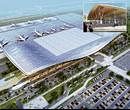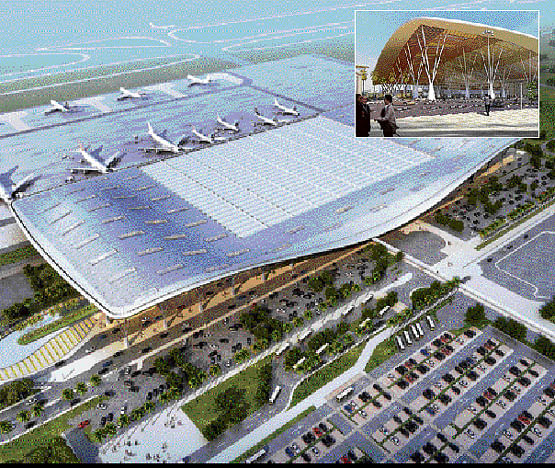

The consortium comprises GVK Power and Infrastructure (GVKPI), Siemens Projects Ventures AG and Zurich Airport, Switzerland.
Briefing the media here, BIAL Managing Director Sanjay Reddy said, “A revised master plan with an investment of just under Rs 1,000 crore has been proposed under the current business model. We expect to add lounges at the space overlooking retail and F and B, apart from constructing additional parking bays. Right now, a proper and upgraded VIP lounge would also be added and provided at level 1.”
The consortium board, which was reconstituted after GVKPI invested 29 per cent in early 2010, will borrow Rs 700 crore from banks as debt, and raise the balance of Rs 300 crore from internal accruals and other stakeholders in proportion to their equity holding in the public-private company.
The debt-equity order of the proposed investment will be in the ratio of 70:30 and will utilise existing funds according to, BIAL Vice-Chairman G V Krishna Reddy.
“Every project will have inadequacies. Airports are not designed for best case scenario. Our first priority is to get expansion plan off the ground,” Reddy said.
To mirror rich culture
“The radiant interiors and new exteriors will mirror the rich culture of Karnataka and the vibrant colours of this garden city” said Sanjay Reddy. Designed by the US-based leading architect design firm HOK in partnership with planners, urban designers and consultants, the expanded terminal will sport a new look, with a swooping and curving roof that will give a new brand image to the otherwise swanky airport.
State-run Airport Authority of India (AAI) and the Karnataka State Industrial Investment Development Corporation (KSIIDC) are also stake holders in the project, with 13 per cent equity holding each.
Replying to a query on whether the expansion plan cost would result in the airline passenger having to pay an additional amount in the User Development Fee (UDF), Sanjay Reddy observed that the airport regulatory commission has issued draft guidelines on charging of passenger fee/UDF. “We cannot comment on this, until the final guidelines are framed and announced” he added.
On the proposed High Speed Rail Link project to provide faster connectivity to the airport, Reddy added that government was keen to have BIAL share cost burden as a airport company. According to BIAL authorities, airline traffic is estimated to increase from the current 10.6 million passengers annually to approximately 17 million passengers by 2015.